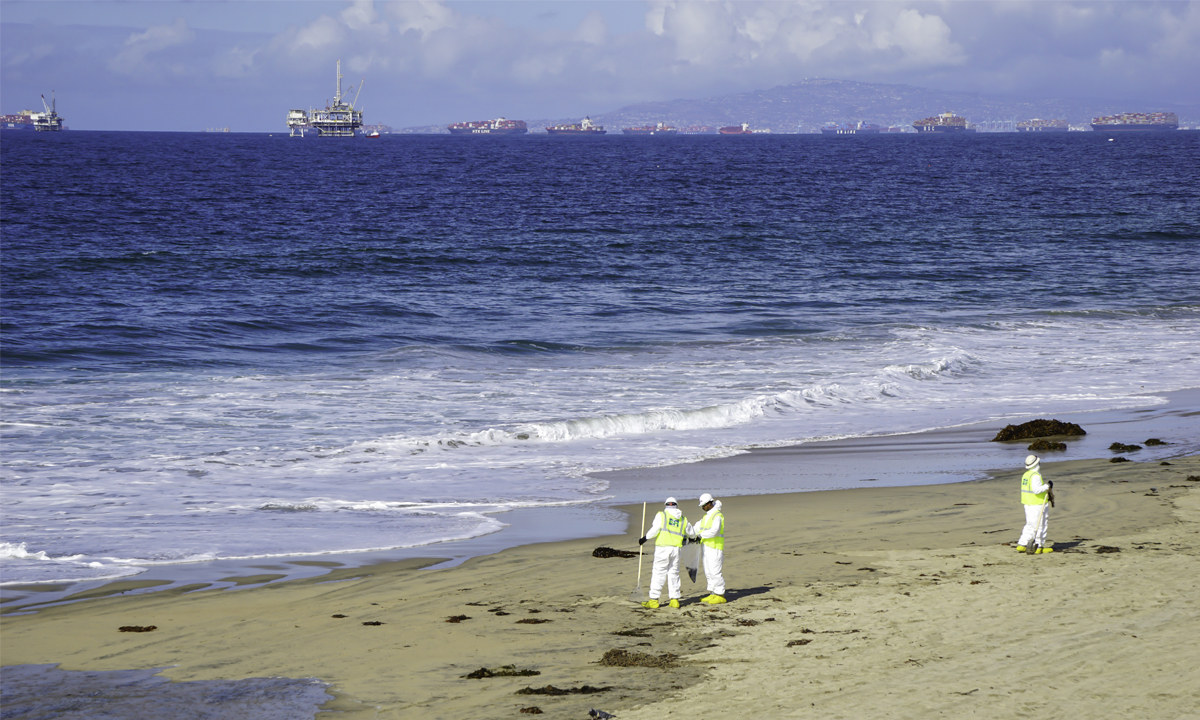
The Center for Accelerating Operational Efficiency (CAOE, a Department of Homeland Security university center of excellence) has awarded a new contract to CREATE Senior Fellow and Price School of Public Policy Research Professor Adam Rose focused on maritime transportation disruptions. Rose, along with partner Fred Roberts from Rutgers’ Command, Control and Interoperability Center for Advanced Data Analysis (CCICADA), will use advanced economic models to evaluate impacts of complex disruption scenarios in the research project.
Background
Recent events have dramatized supply-chain crises and their impacts on the U.S. and global economies. These crises are especially serious in cases of compound events, such as a large container ship blocking the Suez Canal in March 2021 or the recent oil spill off the coast of Southern California, which may have even been caused by ships awaiting berths in the Port of Long Beach.
Project Description
The project will have two parts. The Rutgers team, working closely with subject-matter experts and stakeholder groups, will develop quantified scenarios of potential maritime supply-chain disruptions. The USC team will then use these scenarios in a computable general equilibrium (CGE) model of the U.S. and global economies to determine the direct and indirect economic impacts of the disruptions.
Hundreds of simulations will be undertaken, varying the severity/magnitude/duration of the disruptions and resilience responses. These will serve as the basis for a decision-support module that will provide a rapid capability for assessing maritime system supply-chain disruptions. This module will extend CREATE’s E-CAT (Economic Consequence Analysis Tool) capability, which already has modules devoted to earthquakes, floods, pandemics, and aviation system disruptions.
Other Participants
Dan Wei, CREATE Research Fellow and Research Associate Professor in the Price School, will serve as co-PI. The researchers will be joined by Capt. Andrew Tucci (U.S. Coast Guard, retired) as the lead subject-matter expert. Viterbi and Price School Professor of the Practice Geraldine Knatz, former Executive Director of the Port of Long Beach, will also contribute as a subject matter expert.
For more information, contact Adam Rose: [email protected].
Additional CREATE research on seaport and related supply-chain disruptions includes:
Wei, D., Z. Chen and A. Rose. 2020. “Evaluating the Role of Resilience in Recovering from Major Port Disruptions: A Multi-Regional Analysis,” Papers in Regional Science 99(6): 1691-1722. https://rsaiconnect.onlinelibrary.wiley.com/doi/10.1111/pirs.12553
Koc, E., B. Cetiner, A. Rose, L. Soibelman, E. Taciroglu, and D. Wei. 2020. “CRAFT: Comprehensive Resilience Assessment Framework for Transportation Systems in Urban Areas,” Applied Engineering Informatics 46: 101159. https://doi.org/10.1016/j.aei.2020.101159
Rose, A., D. Wei, and D. Paul. 2018. “Economic Consequences of a Disruption of Oil Imports: The Role of Seaports in U.S. Energy Security,” Energy Policy 115: 584-615. doi.org/10.1016/j.enpol.2017.12.052
Rose, A., I. Sue Wing, D. Wei, and A. Wein. 2016. “Economic Impacts of a California Tsunami,” Natural Hazards Review 17(2): 04016002. doi.org/10.1061/(ASCE)NH.1527-6996.0000212
Rose, A. and D. Wei. 2013. “Estimating the Economic Consequences of a Port Shutdown: The Special Role of Resilience,” Economic Systems Research 25(2): 212-32. doi.org/10.1080/09535314.2012.731379
Posted: October 13, 2021
